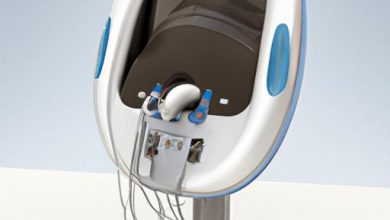10 Reasons Why Healthcare Should Be Free
Healthcare is a basic need that every individual should have access to. Unfortunately, many people around the world face numerous challenges when accessing healthcare services, including high costs, limited access, and inadequate insurance coverage. The absence of universal healthcare has resulted in a global health crisis, with millions of people suffering from preventable diseases and conditions. In this article, we will discuss ten reasons why healthcare should be free and accessible to everyone.
Reduces Financial Burden on Patients

One of the main reasons why healthcare should be free is to reduce the financial burden on patients. Healthcare costs can be very high, and many individuals cannot afford to pay for medical services out of pocket. This often results in delayed treatment or no treatment at all, which can lead to more significant health problems in the long run. In countries where healthcare is free, patients can access medical services without worrying about the cost, which promotes early diagnosis and treatment.
According to a report by the World Health Organization (WHO), universal healthcare coverage could prevent up to five million deaths each year. Countries with free healthcare also have lower infant mortality rates, longer life expectancy, and improved health outcomes for their citizens. For instance, in Canada, where healthcare is free, the average life expectancy is 81 years, while in the United States, where healthcare is not free, the average life expectancy is 78 years.
Furthermore, free healthcare can reduce the burden on emergency healthcare services. In many cases, individuals without access to medical services delay seeking treatment until their condition becomes critical, leading to overcrowding in emergency departments. By providing free healthcare, individuals can access preventive care and avoid unnecessary hospitalizations and emergency department visits.
Improves Overall Health of the Population
Another critical reason why healthcare should be free is that it improves the overall health of the population. Preventive care is crucial in maintaining good health, and free healthcare services can provide individuals with regular check-ups, vaccinations, and screenings. Early detection of diseases can lead to timely treatment, resulting in better health outcomes and reduced healthcare costs.
Moreover, free healthcare can promote healthy living and disease prevention. Health education programs, healthy lifestyle promotion, and disease prevention campaigns are more effective when healthcare is accessible to everyone. In countries where healthcare is free, individuals have access to resources and information that can help them make informed decisions about their health.
For example, in Cuba, where healthcare is free, the infant mortality rate is lower than in the United States, despite having a lower Gross Domestic Product (GDP) per capita. Cuba has a strong emphasis on preventive care, with a focus on community-based healthcare services. This approach has resulted in better health outcomes, including lower rates of chronic diseases such as diabetes and heart disease.
Reduces Economic Burden on Society
Free healthcare can also reduce the economic burden on society. Healthcare spending is a significant expense for both individuals and governments. In countries where healthcare is not free, individuals and families often have to bear the cost of medical services, which can lead to financial strain. This can result in reduced spending on other essential needs, such as food, housing, and education.
Furthermore, healthcare spending is a significant expense for governments, and it can lead to deficits and debt. In countries where healthcare is free, healthcare spending is often lower due to cost-saving measures, such as bulk purchasing of drugs and medical supplies, and the use of preventative care to reduce the incidence of chronic diseases.
For example, in the United States, healthcare spending per capita is the highest in the world, with an estimated $11,072 per person in 2020. In contrast, in countries such as Canada, where healthcare is free, healthcare spending per capita is lower, at an estimated $6,604 per person in 2020. This suggests that free healthcare can lead to lower healthcare spending and reduced economic burden on society.
Promotes Equality and Social Justice
Free healthcare also promotes equality and social justice. Access to healthcare should not be determined by an individual’s ability to pay. In countries where healthcare is not free, individuals who cannot afford medical services often have to choose between their health and other essential needs, such as food and housing. This can lead to health disparities among different socioeconomic groups.
In contrast, free healthcare provides equal access to medical services for everyone, regardless of their income. This promotes social justice and reduces health disparities. In countries where healthcare is free, individuals have access to the same quality of healthcare services, regardless of their socioeconomic status.
For example, in the United Kingdom, where healthcare is free, the National Health Service (NHS) provides healthcare services to everyone, regardless of their ability to pay. This has resulted in better health outcomes for the population, including lower rates of chronic diseases such as heart disease and cancer.
In conclusion, free healthcare provides numerous benefits to individuals and society as a whole. It reduces the financial burden on patients, improves the overall health of the population, reduces the economic burden on society, and promotes equality and social justice. By providing free healthcare, governments can ensure that everyone has access to medical services, regardless of their income or socioeconomic status. At Zahnweiss Info, we believe that healthcare is a basic human right, and we support efforts to make healthcare free and accessible to everyone.
Promotes Equality and Social Justice
Free healthcare promotes equality and social justice by ensuring that everyone has access to medical services, regardless of their income level or social status. In many countries, access to healthcare is limited to those who can afford it, leaving the less fortunate without the necessary medical care they need. This can result in poorer health outcomes and a widening gap in health disparities.
By providing free healthcare, countries can ensure that everyone has an equal opportunity to access medical services, regardless of their financial resources. This can help reduce healthcare disparities and improve health outcomes for the entire population. In countries where healthcare is free, individuals have higher levels of trust in their healthcare system and are more likely to seek preventive care.
For instance, in the United Kingdom, where healthcare is free, the National Health Service (NHS) provides universal coverage to all citizens. This has resulted in better health outcomes, including lower mortality rates and fewer hospitalizations. In contrast, in the United States, where healthcare is not free, individuals without insurance are less likely to seek medical care, resulting in higher rates of preventable illnesses and chronic diseases.
Boosts Productivity and Economic Growth
Free healthcare can also boost productivity and economic growth by promoting a healthier workforce. When individuals have access to medical services, they can maintain good health, which can lead to increased productivity and reduced absenteeism. Moreover, preventive care can help identify health problems early, allowing individuals to receive timely treatment and return to work faster.
In countries where healthcare is free, employers can save on healthcare costs, which can be reinvested in their businesses. This can lead to increased economic growth and job creation. Moreover, free healthcare can attract businesses to countries that offer universal coverage, as it reduces the burden on employers to provide healthcare benefits to their employees.
For example, in Germany, where healthcare is free, the economy is thriving, with low unemployment rates and a strong manufacturing sector. This is partly due to the country’s emphasis on preventive care and early intervention, which has resulted in a healthier workforce and reduced healthcare costs.
In conclusion, healthcare is a fundamental right that every individual should have access to. Free healthcare can improve health outcomes, reduce healthcare costs, promote equality and social justice, and boost productivity and economic growth. Governments worldwide should prioritize free healthcare for their citizens to ensure that everyone has access to the medical services they need to live a healthy life. At Zahnweiss Info, we believe that access to healthcare is essential to living your healthiest life, and we will continue to provide the latest updates on dental health news, treatments and therapies, and expert advice to promote better health outcomes for all.



